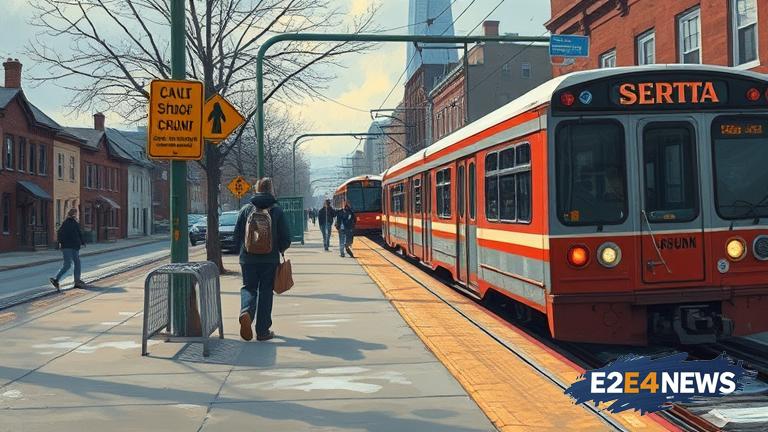The recent transit cuts implemented by the Southeastern Pennsylvania Transportation Authority (SEPTA) have turned Philadelphia school mornings upside down. Students are now forced to set their alarms earlier to catch the reduced number of buses and trains, resulting in crowded and uncomfortable commutes. The cuts, which were made to reduce costs and optimize routes, have had a significant impact on the daily routines of students and working professionals alike. Many students are now waking up as early as 5:30 am to ensure they arrive at school on time, while others are facing lengthy commutes due to the reduced frequency of buses and trains. The crowded conditions on public transportation have also raised concerns about student safety and well-being. Furthermore, the transit cuts have affected not only students but also working professionals who rely on SEPTA to commute to their jobs. The reduced service has resulted in longer travel times, making it challenging for people to get to work on time. The situation has become so dire that some students are now considering alternative modes of transportation, such as biking or carpooling, to avoid the crowded and unreliable public transportation system. Despite the challenges, students and parents are adapting to the new reality and finding ways to make the best of the situation. However, there are concerns that the transit cuts may have long-term consequences on the city’s education system and economy. The SEPTA transit cuts have also sparked a debate about the importance of investing in public transportation and the need for a more efficient and reliable system. In response to the criticism, SEPTA officials have stated that the cuts were necessary to ensure the financial sustainability of the transportation system. However, many argue that the cuts have disproportionately affected vulnerable populations, including students and low-income commuters. As the city struggles to come to terms with the new reality, there are calls for increased funding and investment in public transportation to improve the efficiency and reliability of the system. The situation in Philadelphia serves as a reminder of the importance of investing in public transportation and the need for a comprehensive and sustainable transportation system. In the meantime, students and commuters will have to continue to adapt to the reduced service and find ways to navigate the challenging commute. The SEPTA transit cuts have also highlighted the need for alternative modes of transportation, such as biking and carpooling, to reduce reliance on public transportation. Additionally, there are concerns about the impact of the transit cuts on the environment, as more people may be forced to rely on personal vehicles, leading to increased air pollution and traffic congestion. The city’s education system is also likely to be affected, as students may struggle to get to school on time, leading to decreased attendance and academic performance. The SEPTA transit cuts have sparked a wider debate about the importance of investing in public transportation and the need for a more sustainable and efficient system. As the city moves forward, it is essential to consider the long-term consequences of the transit cuts and work towards finding solutions that prioritize the needs of students, commuters, and the environment.
